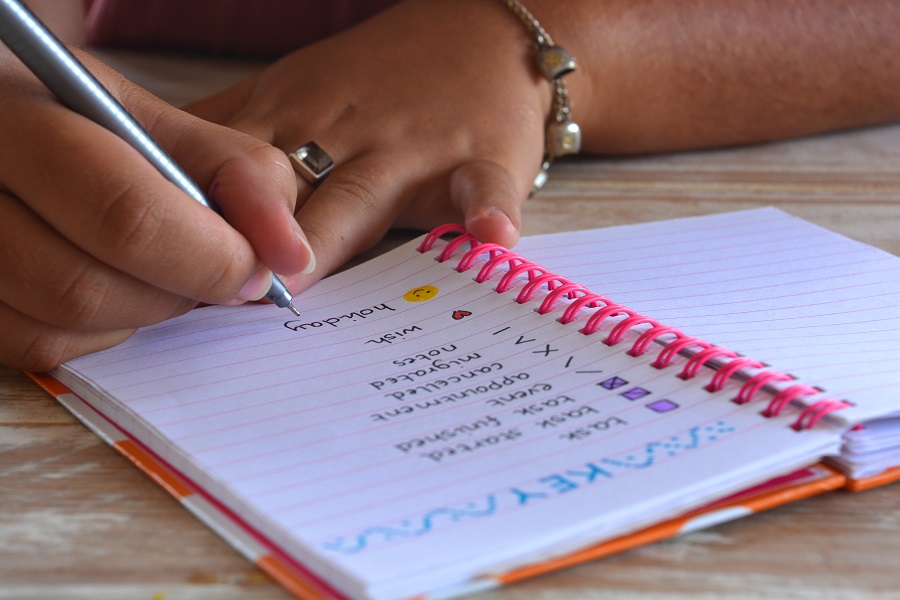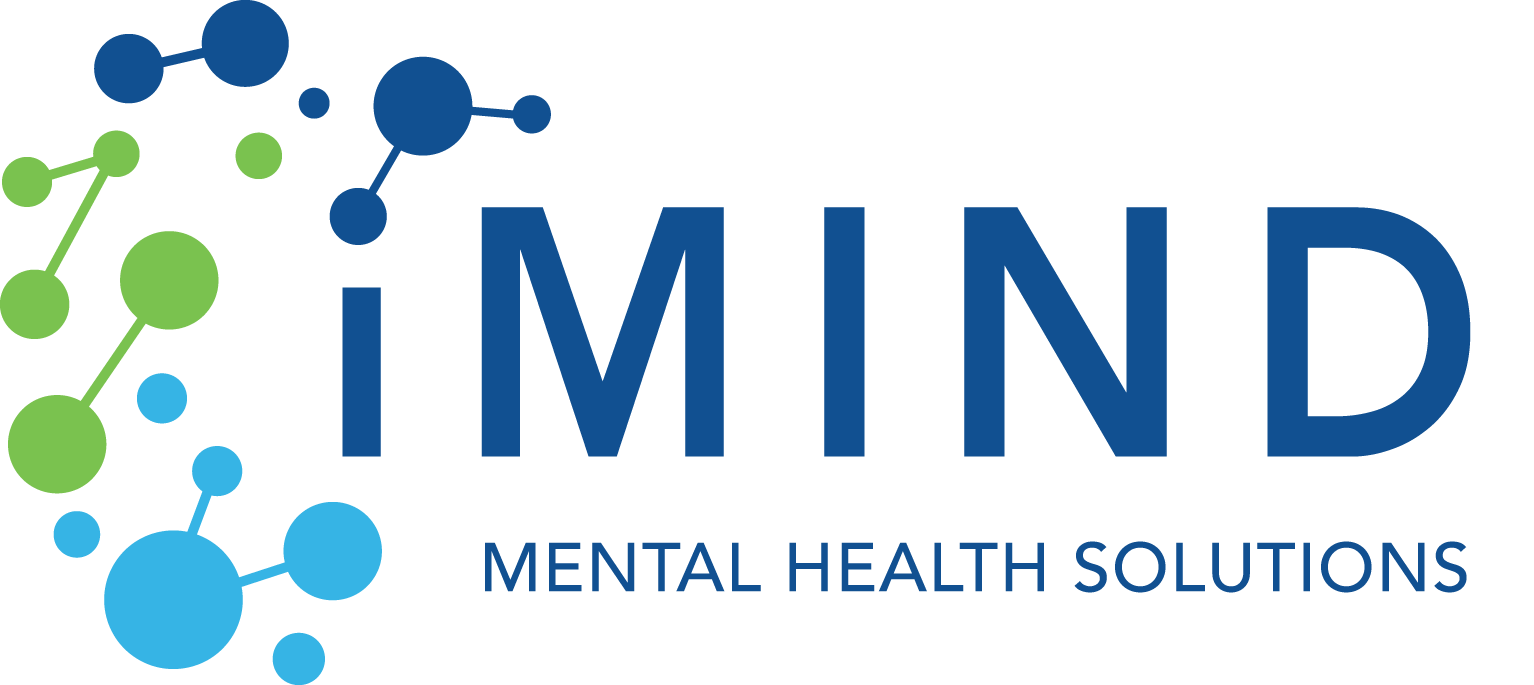Journaling for Mental Health
Published By Justin Baksh, LMHC, MCAP
August 1, 2023

Good news for those who journal. The practice of regularly recording thoughts, feelings, and experiences in a written format – otherwise known as journaling – can serve as a powerful tool for self-reflection and personal growth.
Is Journaling Good for Mental Health?
The connection between journaling and mental health has long been established, with journalers, counselors, and therapists highlighting its therapeutic benefits. By providing an outlet for emotional expression and introspection, journaling aids in stress reduction, self-awareness, clarifying thoughts or emotions, and problem-solving.
Regular practice can lead to improved mental well-being by enhancing mood and allowing users to gain a deeper understanding of themselves and their lives. It also offers a practical way for individuals to monitor their mental health.
Let’s explore findings from three key studies on journaling and mental health.
Expressive Writing and Stress Management
A study by Dr. James Pennebaker from the University of Texas at Austin revealed that expressive writing (writing about one’s thoughts and feelings) is an effective means of stress reduction. Participants who engaged in expressive writing showed significant reductions in stress levels compared to those who wrote about trivial topics . Apart from stress management, the study also found an improvement in participants’ immune system function after practicing expressive writing.
Pennebaker & Beall, 1986
Emotional Regulation through Journaling
In a study conducted by Dr. Mathias Basner from the University of Pennsylvania, journaling was found to help individuals better understand and regulate their emotions. Participants who practiced daily journaling showed an increased ability to recognize patterns in their emotions and employ coping strategies for emotional regulation.
Basner et al., 2018
Long-Term Psychological Benefits of Journaling
A meta-analysis conducted by Dr. Joanne Frattaroli concluded that journaling could have long-lasting positive effects on mental health. According to her findings, regular journaling can lead to enhanced personal growth, improved relationships with others, and increased life satisfaction. Furthermore, participants who practiced journaling continued to experience these benefits even after they stopped journaling actively.
Frattaroli, 2006
Benefits of Journaling for Mental Health
The benefits of journaling for mental health are wide-ranging, from relieving stress to thinking and feeling better.
Improved Self-Awareness
Becoming aware of how you think and operate is invaluable. Journaling helps improves self-awareness by allowing you to:
1. Reflect on emotions and thoughts – Journaling allows you to take a deep dive into your emotions and thoughts, helping you understand them better. Reflecting on your experiences and writing about them can give you valuable insights into your inner world.
2. Identify patterns and triggers – As you maintain a consistent record of your feelings and events in your life, you’ll begin to notice patterns and triggers that affect your emotional well-being. This understanding enables you to deal with those triggers more effectively, contributing to better mental health.
Stress Reduction
We all live stressful lives. There are healthy outlets – like exercising and talking to a trusted friend or qualified therapist – and unhealthy ways of coping. Journaling is a healthy way to deal with stress, as it allows for:
1. An emotional release through writing – Putting pen to paper (or fingers to keyboard) provides an opportunity for emotional release. By pouring your heart out in your journal, you can process complicated emotions, ultimately reducing stress levels and enhancing overall mental health.
2. Problem-solving and decision-making skills development – Journaling helps you clarify your thoughts when faced with difficult decisions or situations. Writing down pros and cons or brainstorming solutions can help develop problem-solving skills that aid in reducing stress.
Enhanced Mood Regulation
Sometimes moods can reign over us. They don’t have to, though. Journaling is one of the ways to help control moods, through:
1. Mood tracking – Keeping a journal gives you the ability to track your moods over time. You can record how you felt each day or week, allowing you to identify any trends or issues affecting your emotions. Gaining this awareness makes it easier to regulate moods by taking proactive measures to improve your mental health.
2. Positive focus shift – Journaling can help you focus on the positive things in your life. By regularly noting things you’re grateful for or happy moments in your day, you can shift your mindset and build resilience against negative emotions.
Cognitive Functioning Improvement
Believe it or not, journaling can help your brain function more effectively. It accomplishes this through:
1. Memory enhancement – Journaling aids in memory retention by giving you a space to record important events, thoughts, and experiences. When writing things down, you engage different areas of the brain, stimulating neural connections that improve memory over time.
2. Verbal communication skills development – By expressing yourself through writing, you practice constructing sentences, using descriptive language and expanding vocabulary. This routine enhances your verbal communication abilities, enabling you to more effectively express your thoughts and emotions.
Journaling Formats and Practices
Journaling is as personal as it is powerful. Although traditional journaling – writing down your thoughts, feelings, and experiences in a chronological order – is the most common, there are other options out there. Depending on your situation, preferences, and the way you feel the most creatively inspired, some of these other types of journaling may interest you as well. They each have their own unique mental health benefits.

Gratitude Journaling
Gratitude journaling focuses on paying attention to and appreciating for the good things in your life. This format entails jotting down the things you appreciate on a regular basis. It helps you refocus from the negative to the positive and encourages a more optimistic mindset. Gratitude journaling has been associated with increased happiness, diminished stress, and enhanced interpersonal connections.

Bullet Journaling
Bullet journaling is a versatile format that combines elements of a planner, diary, and to-do list. It involves using symbols, bullet points, and short sentences to organize and track various aspects of your life. Bullet journaling promotes productivity, organization, and goal setting. It can also serve as a creative outlet and a method for self-reflection.

Art Journaling
Art journaling incorporates visual elements such as drawings, paintings, collages, and mixed media into journaling. This format allows for creative expression and exploration. Art journaling can be a therapeutic process that helps release emotions, reduce anxiety, and improve self-esteem. It provides a safe space for experimentation and self-discovery, regardless of artistic skill level.
How to Journal for Mental Health
Whether you’re new to journaling or an avid writer, incorporating these tips into your journaling routine can help you make the most out of your experience.
7 Steps to Journaling for Mental Health
STEP 1: Set a Regular Schedule
Consistency is essential when it comes to journaling. Set aside time each day or week to do your journaling. By establishing a routine, you can make journaling a natural part of your life.
STEP 2: Find a Suitable Journal
Choose a journal that resonates with you. It can be a beautiful notebook, a digital journaling app, or even a simple piece of paper. The important thing is that it feels right for you and encourages you to express yourself freely.
STEP 3: Write Freely and Authentically
Your journal serves as a personal sanctuary, allowing you to express your true self without fear of criticism. Write what you feel, and don’t censor yourself. Writing freely and authentically helps you gain clarity and self-awareness.
STEP 4: Experiment with Different Journaling Techniques
In addition to the ones mentioned above, you can also try stream of consciousness writing, and reflective prompts. Experimenting with different techniques helps you discover what works best for you.
STEP 5: Incorporate Mindfulness
Journaling can be a mindful practice that brings you into the present moment. Before you start writing, practice some deep breathing and create a calm environment. Pay close attention to your thoughts, emotions, and bodily sensations as you begin to write or type. This approach will help bring you fully into the moment and enhance your journaling experience.
STEP 6: Reflect on Your Entries Regularly
Revisit your previous journal entries and reflect on them. This reflection enables you to monitor your progress, pick up on patterns, and better understand your thoughts and emotions. This self-reflection will help you on the road to personal growth and healing.
STEP 7: Embrace Imperfection
Don’t strive for perfection while journaling. It is more important to focus on expressing yourself, exploring your inner world, and embracing your imperfections. Don’t go into it with any sort of or judgments.
By engaging in expressive writing, we can better manage stress, regulate our emotions, and enjoy long-term psychological benefits. So, dig out that old notebook or start a new digital journal – your mental health will thank you.
Here are some journaling prompts for mental health to get you started.
10 Journal Prompts for Mental Health
- Describe your current emotions. What things might be contributing to how are you feeling right now?
- Write about your self-care routine. What are your favorite ways to care for your mind, body, and soul?
- Write about a fear or insecurity you have. Is there a way to face and address it constructively?
- List three things you are grateful for today, no matter how big or small.
- Describe a situation that made you anxious or stressed. What coping strategies did you use to alleviate these feelings?
- Write a letter to your future self, telling yourself how proud you are of how far you’ve come.
- Write about a skill or hobby you enjoy and how it positively affects your mental well-being.
- Write about a time when you were really proud of yourself.
- What are your main sources of stress, and how can you work on reducing or managing them?
- Explore a past trauma or difficult experience and how it has impacted you. Are there any unresolved emotions you can work on processing?
Remember, journaling is a personal practice, so feel free to modify these prompts to suit your needs and interests. Happy journaling!
- Niles, A. N., Haltom, K. E. B., Mulvenna, C. M., Lieberman, M. D., & Stanton, A. L. (2013). Randomized controlled trial of expressive writing for psychological and physical health: the moderating role of emotional expressivity. Anxiety, Stress, & Coping, 27(1), 1–17.
- Pennebaker, J. W. (2017). Expressive Writing in Psychological Science. Perspectives on Psychological Science, 13(2), 226–229.
- Smyth, J. M., Johnson, J. A., Auer, B. J., Lehman, E., Talamo, G., & Sciamanna, C. N. (2018). Online positive affect journaling in the improvement of mental distress and well-being in general medical patients with elevated anxiety symptoms: A preliminary randomized controlled trial. JMIR Mental Health, 5(4)






